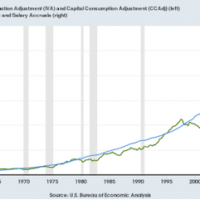-
Living our lives inside a tragedy the size of the planet
After fifteen years in the cold, the International Monetary Fund (IMF) returned to Argentina this May. President Mauricio Macri promised to attract foreign direct investment and to make his country the ‘supermarket of the world’. Instead, Argentina’s economy went into a tailspin. The IMF entered with its shop-worn prescriptions, a recipe that it has effectively sold for the past four decades: structural adjustment.
-
Dossier 10: Argentina goes back to the IMF
For six months, Argentina has been confronted with a new economic and social crisis on a massive scale. In the context the devaluation of local currency, rising inflation, and a deep recession, Mauricio Macri’s administration struck an agreement with the IMF, marking a major shift in the country’s future. The agreements slash public spending and prioritize the repayment of debt, among other measures. This dossier examines the different dimensions of the crisis, the open disputes, and the possibilities for the immediate future.
-
Prisoner prophet: revisiting George Jackson’s analysis of systemic fascism
The rise of Donald Trump has brought talk of fascism to the forefront. While comparing U.S. Presidents to Hitler is certainly nothing new–both Obama and W. Bush were regularly characterized as such by their haters–Trump’s emergence on the national political scene comes at a very peculiar moment in U.S. history.
-
Capitalism is killing patients…and their physicians
Physician burnout, depression, and suicide increasingly invade discussions within the medical field. Depression and suicide are more common among male and female physicians, with suicide rates 1.41 and 2.27 times greater than that of the general male and female populations, respectively.
-
The law versus worker rights
Organizing a union is no easy task in the United States. Although organizing a union is supposed to be a protected right, businesses regularly fire union supporters knowing that they face minimal punishment even if found guilty for their actions. In fact, the rights of all workers, regardless of their interest in unionization, are being whittled down. Simply put, U.S. law doesn’t work for workers.
-
Realities and challenges of recuperated workplaces in Argentina
In this interview we talk to Andrés Ruggeri, anthropologist and researcher who directs the Facultad Abierta programme, dedicated to researching and supporting companies and factories recuperated by their workers. Ruggeri tells us about the history of this movement, the challenges it faces, the relations with recent governments in Argentina, and much more.
-
Never have corporate profits outgrown employee compensation so clearly and for so long
Those aren’t my words. The quotation that forms the title of this post is from a recent Federal Reserve Bank of St. Louis blog post.
-
Fascism is real, but the “resistance” is mostly fake
Fascism is always a danger under capitalism, with its frequent crises and endemic white supremacy, but the phony “resistance” is only concerned about electing Democrats.
-
Corporate concentration, intellectual property rights, and U.S. public policy
Dominant corporations have dramatically increased their market power in the U.S. over the last decades, allowing them to boost their profits and, by extension, political power. And, although rarely acknowledged by the media, this trend owes much to the way public policy has promoted corporate intellectual property rights at the public expense.
-
Geoengineering and environmental capitalism
If, as history shows, fantasies of weather and climate control have chiefly served commercial and military interests, why should we expect the future to be different?
—James Fleming, Fixing the Sky -
A sound ecological policy cannot be achieved within a capitalist framework
“Ecosocialist politics is based on recognizing that a sound ecological policy cannot be achieved within a capitalist framework. In order to restore (to the extent possible) the health of the ecosphere, it is necessary that economic decisions be no longer based on the capitalist goals of maximizing profit and accumulating wealth.”
-
Brexit—another day in the death of the old world order
To fully appreciate the exquisitely excruciating crisis which the British state has landed itself in consider the fact that if Britain wants to get out of Europe it must surrender part of its sovereignty over Northern Ireland—and not only this, since there must be a border between Britain and the EU, this border must be drawn between Britain and the whole of Ireland!
-
After win by Brazilian fascist Jair Bolsonaro, world’s capitalists salivate over ‘new investment opportunities’
“Capitalism only asks whether fascism is profitable.”
-
Maduro slams ‘crazy extremist’ Mike Pence over claims Venezuela is funding migrant caravan
NICOLAS MADURO branded U.S. Vice-President Mike Pence a “crazy extremist” today after Washington accused the Venezuelan president of funding the migrant caravan which has been blocked from entering the U.S.a
-
The crisis of capital
It may be hard, but I want you to try to think back a decade, actually slightly less than a decade. In 2000, we were celebrating the millennium, and if you remember what was happening at that time, it was an enormous celebration of a new global capitalism, of globalization, of the end of conflict in the world, of a new world order.
-
Trump, or capital in the Oval Office
The moment was of course metaphysically necessary—that capital incarnate itself as man and come among us. The question we must ask rather is how this descent occurs, for that determines all that follows.
-
Twenty-first century capitalism—the means exist to break the chains that hold us
“The overwhelming character of the ecological crisis will eventually…[force workers to recognize] that the main material conditions determining their lives are both economic and environmental—and indeed that the latter are more far-reaching.”
-
Yes, ExxonMobil and Chevron are still distorting climate science
If you look at headlines from the last year, ExxonMobil, Chevron and other major fossil fuel companies have seemingly turned a new page on climate change.
-
Poor People’s Campaign – June 23, 2018
In this special episode, we offer a montage of interviews, songs, and speeches recorded during the Poor People’s Campaign’s June 23 rally on the National Mall and march on the US Capitol. To learn more about the 21st Century.
-
Costas Lapavitsas: socialism starts at home
“We have relations of domination, new ways in which imperialism manifests itself. That’s the reality of Europe, not the fairy stories of an alliance of nations, overcoming national borders, becoming one big, happy family.”



















